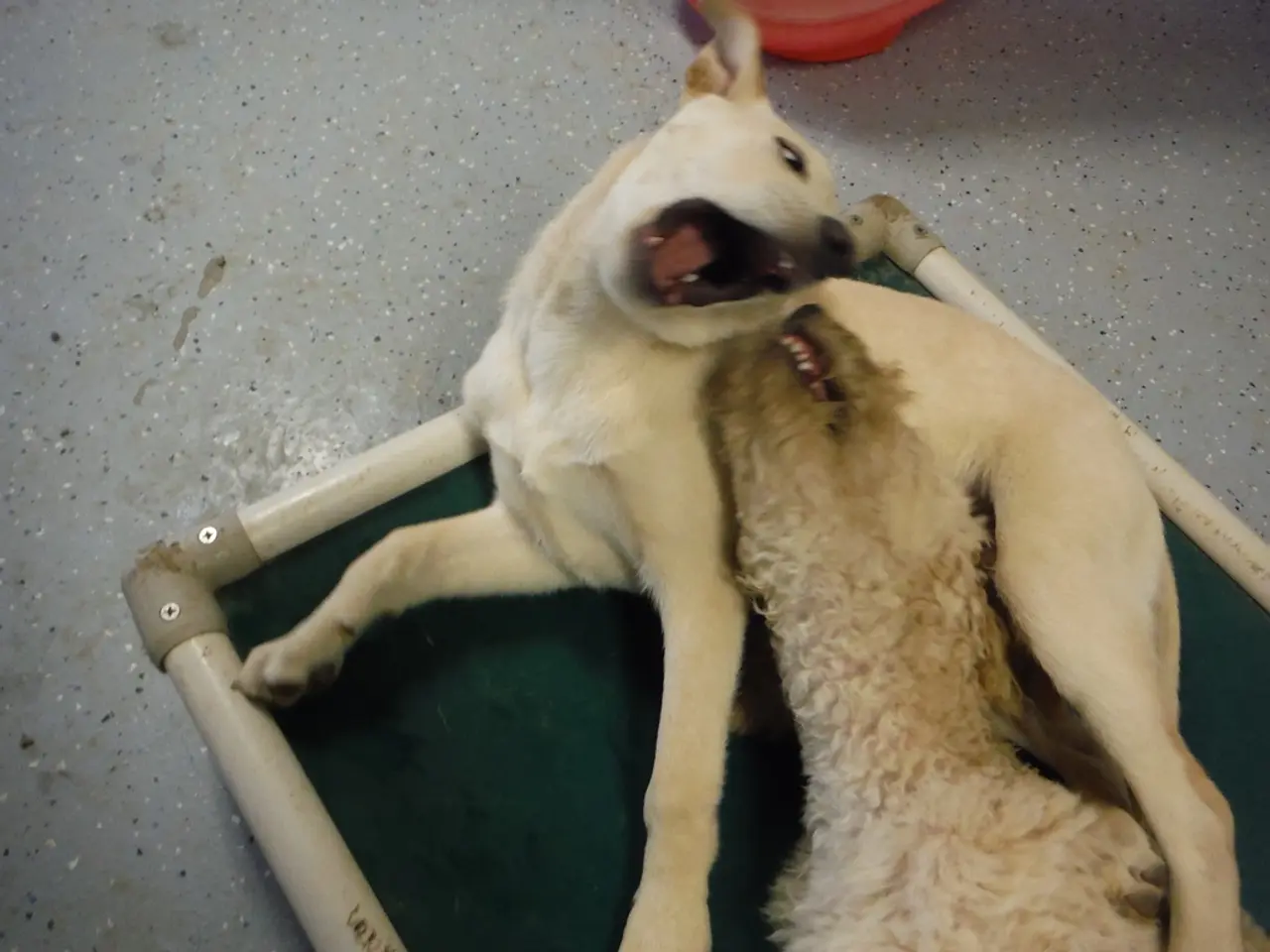Infections from Animal Bites: Recognizing Signs, Identifying Issues, and Appropriate Remedies
Animal bites can pose a significant health risk, particularly if they go untreated. Infections are a common complication, especially when the bite causes a cut or puncture wound. According to health experts, approximately 50% of cat bites lead to infection, making them the most risky type of animal bite.
Prompt and proper care is crucial in preventing severe complications such as deep tissue infections, nerve or muscle damage, and in rare cases, life-threatening conditions.
Immediate wound care is the first step. Thoroughly clean the wound with soap and water to remove bacteria. Avoid using hydrogen peroxide or alcohol, as they can irritate tissue. Apply topical antibiotics, such as povidone iodine, to reduce the risk of infection. Cover the wound with a sterile bandage and change it daily.
Monitoring for infection is equally important. Watch for signs of swelling, redness, pus, increased pain, or fever. Seek medical or veterinary attention if symptoms develop.
For infected bites, antibiotics are typically prescribed, often orally but sometimes intravenously for severe cases. The choice of antibiotic depends on the bacteria present. Tetanus prophylaxis may also be necessary if the wound is deep and the vaccination status is uncertain.
In the event of a wild animal bite, there is a concern about the risk of the animal carrying rabies. If the biting animal's rabies status is unknown or positive, rabies prevention (post-exposure prophylaxis) is critical.
Severe infections with abscess formation may require surgical drainage and debridement. Hospitalization may be needed for systemic infections or complications affecting multiple body systems.
Rest and adherence to wound care instructions are essential. Continuously monitor for worsening symptoms or new signs of infection.
It's important to note that over 5 million people report animal bites each year, and 90% are due to dog bites. Anyone bitten by an animal should seek professional evaluation to determine appropriate treatment and preventive measures.
In summary, the key to preventing complications is immediate thorough cleaning, prompt medical evaluation, antibiotic use as needed, and careful monitoring for infection symptoms. For deeper wounds, apply pressure to the wound to stop the bleeding before applying a clean bandage. Anyone who sustains a bite from any animal should get a tetanus vaccine if not up to date.
Remember, any bite from a wild animal warrants immediate medical attention, and anyone showing signs of infection, such as inflammation, pain, redness, and swelling, should see their doctor for an animal bite. A tetanus shot may be recommended by a doctor if a person's last one was more than 5 years ago and the wound is dirty or contaminated.
Untreated animal bites have the potential of causing blood or bone infections, which can be fatal if left untreated. Thoroughly cleaning the wound with soap and water is the first step in treating an animal bite. Early care, such as cleaning the wound, using antibiotic creams, and regularly changing bandages, can help prevent infection.
[1] Centers for Disease Control and Prevention. (2021). Animal Bites.
- In the realm of pet ownership, prompt care is vital following accidental falls or bites, as failing to address these injuries can lead to health complications such as infections or tissue damage.
- To ensure mental health and wellness, individuals should prioritize fitness-and-exercise routines and skin-care regimens, while also being mindful of the potential risks associated with pet bites and falls.
- Integrating health-and-wellness practices that cater to both physical and mental wellbeing, such as regular exercise and stress management techniques, can help create a balanced lifestyle and reduce the risk of mental health issues. Similarly, adopting a consistent skin-care routine can contribute to overall health by promoting skin health and reducing the risk of infections due to accidental falls or injuries.








